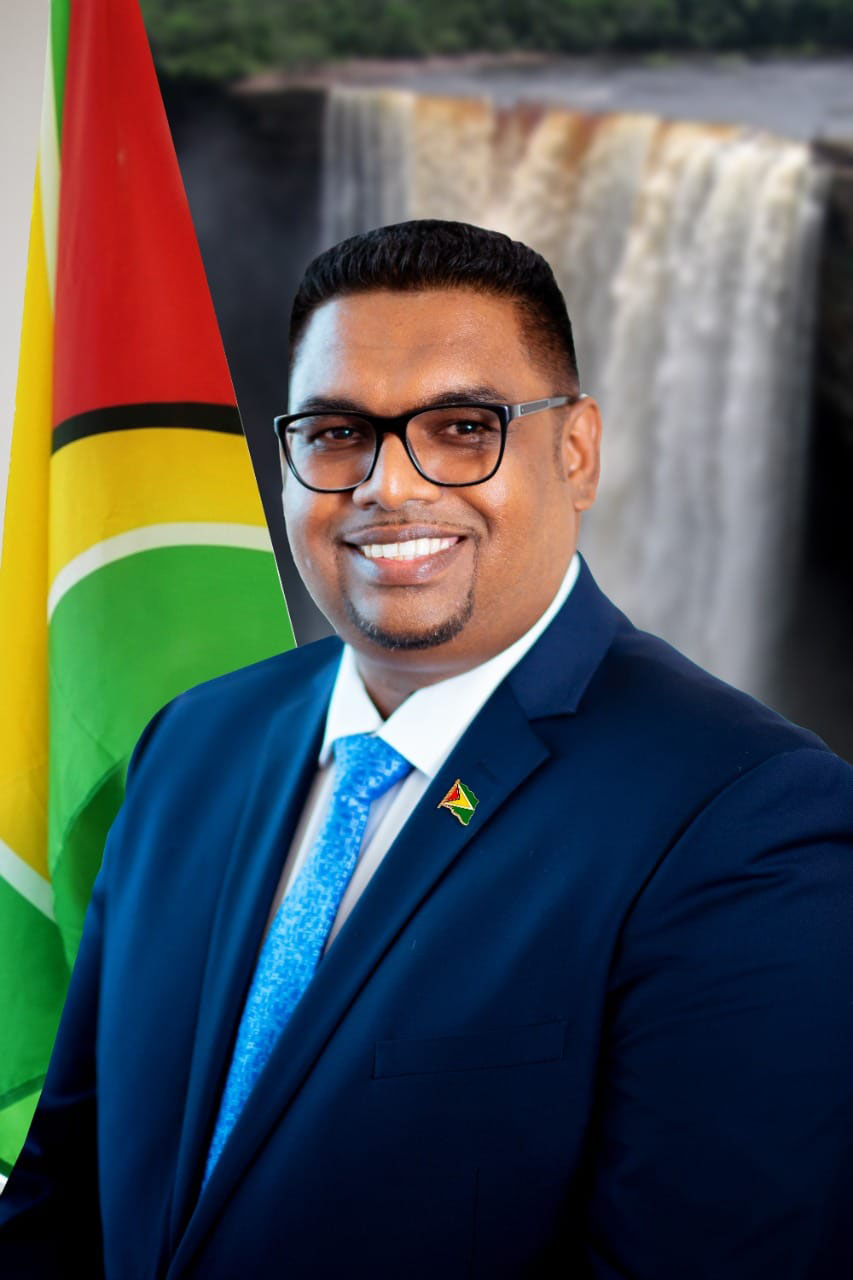
Irfaan Ali
April 13, 2021
The planned Commission of Inquiry (CoI) into the events that dragged out the March 2 elections process remains on the cards, President Irfaan Ali said yesterday while assuring that his government will be honouring its commitment.
Asked by Stabroek News on the sidelines of the swearing in of members of the Local Government Commission for an update on the elections review, Ali said, “It is going to come very soon.”
The Head of State explained that the preparation for the inquiry is taking longer than expected as his government has had to place focus on a number of national and regional issues that have been unfolding.
“You will have the CoI into the elections and we are working on that. A lot has occurred over the last seven months which we are dealing with it. But it is going to come and it is going to come very soon so is not us moving away from our commitment,” Ali said.
In his inauguration speech back in August, Ali announced a review of the elections process and committed to holding anyone who tried to undermine it to account.
“A review of events related to the electoral process over the last five months will begin shortly in order to determine, forensically, exactly what transpired, and to hold accountable any persons who sought to pervert and corrupt the system,” he had said.
Five months after the polls and after a series of legal battles, Ali was declared the winner of the presidential elections and subsequently sworn in as the country’s ninth executive president, on August 2, 2020.
The announcement came after Chief Election Officer Keith Lowenfield submitted the results of the March 2nd general elections using the numbers of a national recount, which had been necessitated by attempts to manipulate the count for Region Four in favour of the former APNU+AFC coalition.
Ali had stated that there were “vigorous attempts” made during those five months to destroy the democratic credentials of people and to deny the will of the electorate.
He had also committed his government to pursuing the necessary reforms so as to strengthen democracy and make the electoral process more transparent.
“All of us have an obligation to the nation and to ourselves to ensure that never again should any generation of our people be subjected to such unlawful behaviour,” Ali had stated.
Region Four Returning Officer Clairmont Mingo was accused of twice presenting falsified figures – on March 5th and March 13th – and the major observer groups had found his tabulation not to be credible.
The Guyana Elections Commission (GECOM) subsequently executed a recount exercise that showed that the PPP/C had won the majority of votes. However, the credibility of the results determined by the recount have been challenged by the APNU+AFC, which has claimed that alleged irregularities that were uncovered compromised the polls.
Mingo, Chief Election Officer Keith Lowenfield and APNU+AFC agent Volda Lawrence have since faced criminal charges, including conspiracy to commit fraud, for their alleged roles in the attempted manipulation of the results. The charges faced by Mingo and Lowenfield include alleged misconduct in public office.
Sheffern February, a clerk employed by GECOM, was a charged with two counts of attempting to defraud the people of Guyana, while Enrique Livan, an Information Technology officer attached to GECOM, was also taken before the court on a charge of manipulating the numbers of the statements of poll that were recorded in the system so that they reflected fraudulent numbers for District Four.
In addition, two separate elections petitions challenging the results were filed before the courts. One was thrown out while the other is tentatively set for ruling on April 26.
The petition came up last week for arguments, during which Senior Counsel John Jeremie, on behalf of the petitioners, advanced that Section 22 of the Election Laws Amendment Act (ELAA) by which the Guyana Elections Commission (GECOM) created Order 60 for the recount of votes from the March 2nd, polls was unlawful. Senior Counsel Douglas Mendes, Anthony Astaphan and Attorney General Anil Nandlall who represent various respondents in the matter, have all, however, rejected Jeremie’s position, arguing that where certain difficulties arise in respect to an election, Section 22 empowers the Commission to resolve the difficulties.
